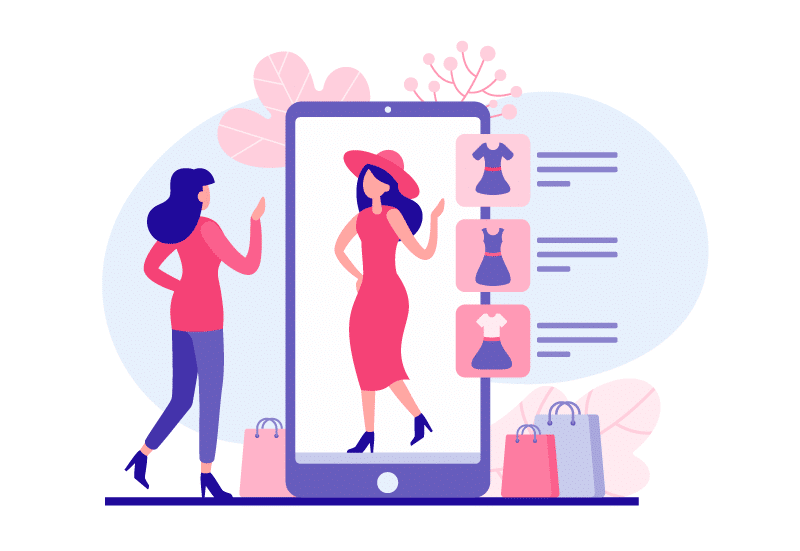Self-driving cars, GPS, facial or voice recognition systems, search engines… Artificial intelligence is now part of our daily lives.
The benefits of AI are not only evident in the domestic world but also in the professional world. Indeed, its use can also be used to optimise ROI and business efficiency. By increasing the proactivity of companies and making it easier to perform certain tasks, AI is proving to be a real asset for brands.
Discover 5 examples of industries that are already taking advantage of the many benefits of AI:
1) AI in the banking and insurance sector
The rise of mobile payment and banking apps highlights the perennial weakness of connected devices: the security of our data. The power of AI helps to minimise the risk of fraud and stem the tide of cyber-attacks. Thanks to AI, hundreds of transactions can be monitored in real time. For example, when a transaction is made from a new device, you receive a notification to alert you.
Many industry players are already benefitting from the AI trend. This was the case with Ping An, a leading Chinese insurance company. It launched a robot that can detect possible insurance fraud attempts. This is made possible by analysing facial expressions via a camera.
Finally, AI can also be used to monitor access to an establishment through facial and device recognition.
2) AI in the health sector
In this sector, AI has really become indispensable, especially in the detection of anomalies. Thanks to algorithmic intelligence technologies , it is possible to more quickly detect whether a patient is suffering from a disease such as diabetes or cancer. This optimises the interpretation of medical images in which anomalies are undetectable to the naked eye. The programmes used learn autonomously by storing all the biological anomalies already detected in their memory in order to guarantee greater accuracy in future diagnoses.
In China, Alibaba and Ping An are using AI to facilitate the process of detecting Covid-19 carriers.
Finally, in Montreal at the CHUM, AI is used in the emergency department to classify patients according to their degree of urgency. By entering the details of their symptoms into a computer, AI is able to determine whether the problem is cardiac, pulmonary or respiratory. This saves emergency physicians valuable time in classifying hospital emergencies.
3) AI in the world of recruitment
The use of AI is proving to be a significant time saver in certain tasks such as sourcing and processing applications. It also allows for more complex analysis of candidates, including examining the physical properties of their voice (tone, speed of speech, tremors, intonation, …) but also the vocabulary used.
Furthermore, with the help of filtering software , it is possible to detect the most outstanding candidates according to precise selection criteria. This is notably the case of Pipler, a French service specialising in recruitment profiles that enable them to search the web for a “hidden gem”.
4) AI in the digital communication sector
It goes without saying that artificial intelligence is now an integral part of an optimised communication strategy. By using AI to improve targeting of your customers, it is now possible to reach the right person, at the right time and in the right place! For example, social networks use machine learning and deep learning (artificial intelligence derived from machine learning, consisting of a neural network functioning like a human brain and allowing self-learning) in order to personalise the content of a news feed according to the interests of each user.
Algorithms also make it possible to personalise the selection of advertisements offered to different Internet users according to the probability that they will be interested in them. They are also used to translate the content of posts into different languages.
On Facebook, YouTube, Instagram, Twitter, … There are also moderating algorithms that are used to prevent hateful comments, fake accounts or the propagation of animal abuse videos.
Thus, the benefit for brands lies in the optimisation of personalised marketing campaigns. Indeed, thanks to AI, it is possible to anticipate users’ behaviour , which increases the accuracy of targeting. The automation of certain tasks also allows for significant time saving. Chatbots can answer frequently asked questions via instant messaging. The community manager therefore gains efficiency and speed of response, which greatly contributes to the optimisation of the user experience.
5) AI in the fashion industry
With the aim of improving their finished product, the French company Onogone has devised an automatic quality control technology based on deep learning. Using information gathered from several million textile samples, it is now possible to automatically detect manufacturing defects.

AI is of course an essential tool for optimising the customer experience. Zalando has just made a strategic investment to offer its customers “virtual fitting rooms”. The e-commerce giant wants to offer its customers the ability to try on clothes using body scans and virtual 3D models. This will make it possible to identify the right fit and sizes and thus reduce the number of exchanges.
In conclusion, artificial intelligence is now playing a very important role in many industries. Many companies have already taken the plunge, as its use can save a considerable amount of time and optimise the UX ! So what are you waiting for? Integrate AI in your business strategy!
Your digital partner since 1999



